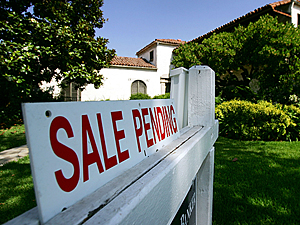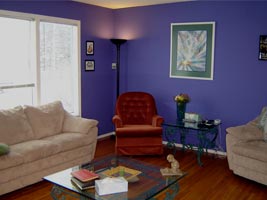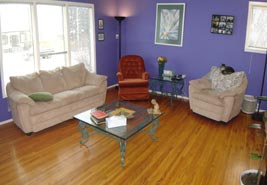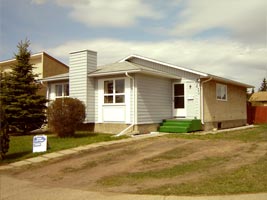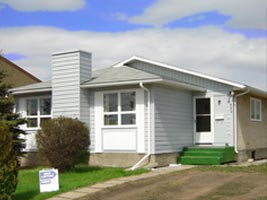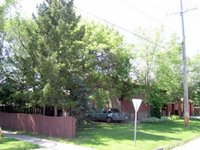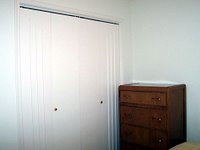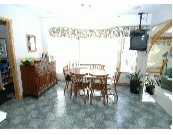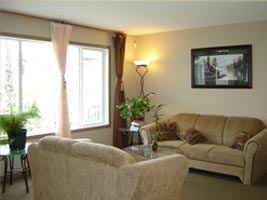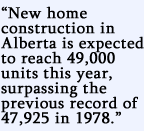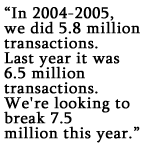
So we're finally getting some new office space in downtown Edmonton. It's been a long time since something commercial has gone up - 17 years to be exact - a sure sign that this city is growing. Commercial rents are up 70-100% in the downtown core, further evidence of the tight market. It's a three-story project at Jasper Ave, and 104 st., the article below also outlines some other upcoming changes to the downtown landscape....
Edmonton's joining the office space partyOil money is driving the Alberta capital's commercial real estate renaissance
CATHIE BARTLETT
Special to The Globe and Mail
EDMONTON -- Something unusual will happen in downtown Edmonton next month -- for the first time in 17 years, construction is scheduled to begin on a commercial office building.
It will be modest by any standard -- just three storeys -- but it's significant given that downtown Edmonton has not seen a new commercial building since 1989.
And it speaks to the commercial property resurgence that the city is currently enjoying as part of the oil-fuelled building boom in Alberta.
Not that downtown Edmonton has been without construction, Jim Taylor, executive director of the Downtown Business Association of Edmonton, points out. Indeed, the Alberta capital's downtown has seen plenty of development on the residential side.
Print Edition - Section Front
In the late 90s, the city brought in a residential grant program to encourage home building downtown -- and that's what happened, with 12 condo high rises and four low rises added to the horizon, along with historic warehouses and less desirable redundant office space converted to living quarters -- some of which came with some commercial space on the ground floor.
While Calgary has captured most of the ink in the latest boom, Edmonton has quietly enjoyed the updraft as well.
Office vacancy rates are at a record low and industrial land is at a premium. Rents are up, space is tight downtown, and out in the suburbs, commercial properties are springing up.
Vacancies have dropped to 6 per cent from 9.5 per cent while rents have escalated 70 to 100 per cent in the past 18 months, says Todd Throndson, managing partner of Avison Young Commercial Real Estate in Edmonton.
Especially noteworthy is the change in attitude -- to a landlord's from a tenant's market -- with landlords adamant about getting the rents they seek and walking away from potential deals that don't look promising enough, Mr. Throndson says.
His colleague, Dean Wulf, general manager of Avison Young's Edmonton operation, says the tight downtown market is a ripple effect of the frenzied energy industry.
The lawyers, accountants, consultants and ad agencies who serve the industry are growing and taking up the downtown space left idle when government layoffs in the early 90s sent the rental market into a tailspin.
That, combined with the dearth of downtown office development, means any available office space is being snapped up, especially prime double-A and single-A space.
"Now, these tenants are facing sticker shock when they renew or expand," Mr. Wulf says. "They're coming off rents of $6 to $8 a square foot and your landlord gives you a renewal for $18 to $21 -- that's sticker shock."
Parking costs are rising as well downtown, which could push offices out to the suburbs, where parking is usually free, says Mike Parker, president of Cushman & Wakefield LePage in Edmonton. "We anticipate we're going to see some construction in the office market in the suburban areas."
On average, parking goes for $240 to $250 a stall a month in the downtown core.
Suburban tenants, on the other hand, typically get 2½ to three stalls per 1,000 square feet included in their office rent.
Mr. Parker predicts high land and labour costs will hinder new construction in the city centre. "If you were to put up a new building downtown, the landlord would need $28 net rent plus another $10 for operating costs and taxes. If you go out to the suburbs, the net rental rate would be $18 to $20 with $8 in operating costs."
But one developer is determined to make a go of it downtown, however modestly.
John Day says leasing arrangements are in the final stages for the first floor of the three-storey building he is developing and will co-own at the corner of Jasper Avenue and 104th Street on the site of the now-demolished Cecil Hotel.
He will only say the ground floor will be occupied by a "food tenant," while the upper floors will be large offices.
The new building, which will have 60,000 square feet, not including the 50 underground parking stalls, "will really clean up that corner" of downtown and accent Edmonton's renewal project along 104th Street in the warehouse district, Mr. Day says.
Which is why Mr. Taylor of the Downtown Business Association is enthusiastic about the new building.
"We're incredibly excited because it's not just a new building on the corner of Jasper and 104th Street . . . It's the end of an ugly derelict building that was causing all kinds of problems as the surrounding area was being revitalized."
And he's ecstatic about a planned high-rise addition to Petroleum Plaza, now a two-tower office complex on 108th Street that will add more than 215,000 square feet of office space.
The last big commercial building to be built was Commerce Place in 1989. The project marks "a significant corner we've turned in the downtown area," and Mr. Taylor says he thinks there will be more downtown office construction, given the low vacancy rate.
Jim Hewitt, vice-president of KingStreet Capital Partners, confirms the company has been granted a development permit for the Petroleum Plaza project. There is no start date yet, because, as Mr. Hewitt says, "it's still very preliminary."
Meanwhile, work continues on retrofitting the Devonian Building at Jasper Avenue and 111th Street, the former site of the province's Department of Education. Murray Brown, president of Canterra Developments Corp., says he considered converting the two-tower property to residential space, among other options, after buying the property three years ago.
"We are retrofitting this building in anticipation that there will be demand for high-end office space in the near future."
The base building will be finished late this year and ready for tenant improvements in January. "At that point, it will be the largest block of contiguous vacant space ready for occupancy in Alberta," he says.
Another downtown corner could look different in the not too distant future. The former Bank of Montreal building in the heart of downtown was recently sold to Dundee Real Estate Investment Trust of Toronto from Worthington Properties of Edmonton and may be demolished.
Edmonton is braced for the spinoff benefits associated with the more than $125-billion worth of industrial projects slated for development in northern Alberta's oil sands over the next decade.
A big challenge will be keeping pace with demand for both office and industrial space -- and labour shortages are a key issue, says Dave Young, vice-president and manager of the national investment team at CB Richard Ellis in Edmonton.
"My concern is not availability [of land]; my concern is construction costs and availability of labour . . . We're operating at almost full employment now."
 TD warns of potential for housing problems in West
TD warns of potential for housing problems in West
